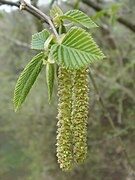Striker & Mannschaft
Jul. 15th, 2014 05:21 pmstrik·er [ˈstraɪkə]:
origin: (1350–1400) Dutch; stryge/Finnish; strýkva= strike + -er
noun
In short, it means "one who strikes", but depending on the scenario that can mean very different things:
1. A person refusing to work in order to show support/solidarity for a cause.
2. The mechanism inside a clock or watch, marking the hours or sounding an alarm.
3. Navel, on-the-job special training (informal) with the prospect of rank promotion.
4. An assistant blacksmith, who swings the hammer.
5. Firing pin on a gun; the striking mechanism.
6. A "forward" in soccer, whose position is key to getting goals; jock, athlete.
7. Biblical; person prone to using physical assault as a method of negotiation/coercion: "For a bishop must be blameless, as the steward of God; not selfwilled, not soon angry, not given to wine, no STRIKER, not given to filthy lucre." [Titus 1:7]

mann•schaft [ˈmanʃaft]:
origin: German; Mann= “man” + schaft= ship
noun
A German word meaning "team", though not exclusively their soccer team (as is sometimes thought), it refers to any sports team or the crew of a ship; crew; soldiers.
Grammatically speaking, it is not used beyond sports or sea: one would not refer to a group of scientists or artists as a mannschaft. However, it is often used as a shorthand to refer to the famous German soccer team: Die Deutsche Nationalmannschaft.



